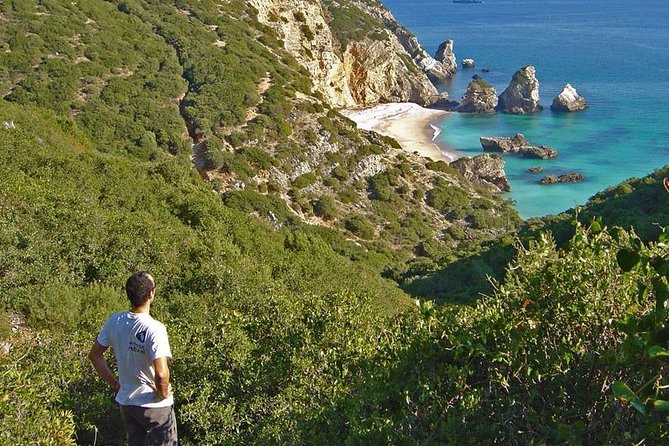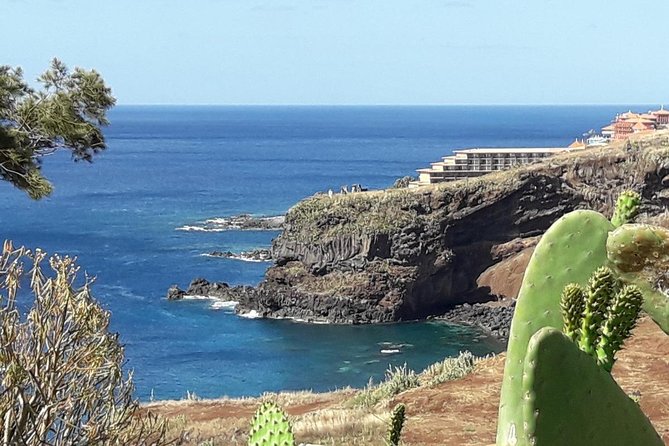Sustainable – ECO Tourism
With over 1.8 billion international tourist arrivals recorded in 2019, the global travel industry continues to thrive. But amidst this growth, a quiet revolution is taking place – the rise of sustainable – ECO Tourism.
This eco-conscious form of travel goes beyond mere sightseeing, aiming to leave a positive impact on the environment and local communities. As travelers become more socially and environmentally aware, the demand for sustainable tourism experiences is on the rise.
How can individuals participate in this transformative journey towards responsible travel?
Key Points

- Eco-tourism promotes environmental conservation and sustainable travel practices.
- Local communities benefit economically and culturally from eco-tourism initiatives.
- Biodiversity is preserved through community involvement and sustainable livelihoods.
- Ecosystems are protected through eco-friendly practices and wildlife conservation efforts.
Importance of ECO Tourism

ECO Tourism plays a crucial role in protecting the environment and fostering sustainable travel practices. Beyond environmental conservation, this form of tourism also brings substantial economic benefits to local communities.
By engaging in sustainable practices, such as supporting local businesses and artisans, ECO Tourism contributes to the preservation of cultural heritage and traditions. This aspect is vital in maintaining the authenticity of destinations and ensuring that future generations can continue to appreciate and learn from diverse cultures.
Ultimately, the economic benefits generated by ECO Tourism not only help in the conservation of natural resources but also play a significant role in safeguarding the rich tapestry of cultural diversity around the world.
Environmental Conservation Efforts
Efforts to preserve and protect the environment through sustainable tourism practices have become increasingly vital in today’s global context. Conservation strategies play a key role in mitigating the negative impacts of tourism on natural ecosystems. These strategies often involve measures such as reforestation, waste management, and wildlife protection.
Plus, community engagement is essential in fostering environmental conservation. By involving local communities in decision-making processes and conservation efforts, sustainable tourism initiatives can create a sense of ownership and responsibility towards the environment. This collaboration not only helps in preserving natural habitats but also ensures that the benefits of tourism are shared equitably among community members.
Through a combination of conservation strategies and community engagement, sustainable tourism can promote environmental conservation while supporting local communities.
Community Support Initiatives

Community initiatives play a crucial role in fostering sustainable tourism practices and supporting local populations. These initiatives involve active community engagement and collaboration to ensure the success of conservation projects. Here are some key ways in which community support initiatives contribute to sustainable eco-tourism:
-
Local Participation: Involving local community members in decision-making processes and project implementation.
-
Capacity Building: Providing training and resources to empower local communities to take an active role in conservation efforts.
-
Cultural Preservation: Supporting initiatives that aim to preserve and promote local cultures and traditions.
-
Economic Opportunities: Creating sustainable economic opportunities for community members through eco-tourism activities.
Biodiversity Promotion Strategies

Implementing effective strategies to promote biodiversity is essential for sustaining eco-tourism destinations and preserving the natural ecosystems they rely on. Biodiversity preservation involves safeguarding the variety of plant and animal species within an area.
To achieve this, eco-tourism operators can implement various local engagement strategies. These strategies may include involving local communities in conservation efforts, supporting sustainable livelihoods that reduce pressure on natural resources, and educating visitors about the importance of biodiversity.
Ecosystem Impact Mitigation

Mitigating the impact on ecosystems is a crucial aspect of sustainable eco-tourism practices. To achieve this goal, eco-friendly practices and conservation techniques are essential:
- Implementing sustainable waste management systems to reduce pollution
- Supporting local biodiversity through habitat restoration projects
- Educating travelers on responsible wildlife viewing to minimize disturbance
- Engaging in community-led conservation initiatives for long-term ecosystem health
Visitor Sustainability Education

Visitors to eco-tourism destinations are encouraged to actively participate in sustainability education programs. By engaging in these initiatives, visitors gain a deeper understanding of sustainability practices and their role in preserving the environment.
Through interactive workshops, guided tours, and hands-on experiences, visitors learn about local ecosystems, conservation efforts, and ways to minimize their environmental impact. Sustainability education not only empowers visitors to make informed choices during their stay but also inspires them to incorporate sustainable practices into their daily lives.
Sustainable Tour Exploration Recommendations

For a truly memorable and impactful eco-friendly travel experience, consider these sustainable tour exploration recommendations.
-
Prioritize Tourist Engagement: Opt for tours that actively involve travelers in conservation efforts and educate them on sustainability practices.
-
Support Local Partnerships: Choose tours that collaborate with local communities, ensuring that the economic benefits are shared and contribute to local development.
-
Embrace Sustainable Practices: Look for tours that promote biodiversity conservation, minimize negative impacts on ecosystems, and prioritize environmental protection.
-
Seek Educational Opportunities: Select tours that go beyond sightseeing by providing in-depth information on the importance of sustainability and the local environment.
Common questions

How Can Tourists Contribute to Sustainable – ECO Tourism Efforts Beyond Just Booking ECO-Friendly Tours?
Travelers can contribute to sustainable efforts beyond booking eco-friendly tours by engaging with local communities, practicing responsible travel, supporting conservation initiatives, and promoting sustainable practices. By doing so, they help preserve ecosystems and promote long-term environmental sustainability.
What Are Some Examples of Successful Partnerships Between Eco-Tourism Companies and Local Communities?
Successful community partnerships in sustainable tourism empower locals by involving them in conservation efforts. Collaborations between eco-tourism companies and communities include training programs, revenue-sharing initiatives, and cultural exchanges, fostering mutual benefits and preserving natural resources for future generations.
How Do Eco-Tourism Operators Ensure That Their Activities Do Not Disrupt the Natural Habitats of Wildlife?
Eco-tourism operators ensure their activities don’t disrupt wildlife habitats by implementing responsible tourism practices. They focus on wildlife conservation, biodiversity protection, and sustainable approaches. Educating visitors about the importance of preserving ecosystems plays a crucial role in their efforts.
Are There Any Specific Initiatives in Place to Reduce Waste and Minimize the Carbon Footprint of Eco-Tourism Activities?
Initiatives in place include waste reduction measures and carbon footprint minimization strategies. Community engagement and wildlife protection efforts further enhance sustainability in eco-tourism. These actions aim to preserve natural habitats while offering enriching experiences for visitors.
Can You Provide Examples of How Eco-Tourism Has Positively Impacted the Economy of Local Communities in the Long Term?
In the long term, eco-tourism fosters economic empowerment and community development by boosting local economies. Sustainable practices support livelihoods, create jobs, attract investments, and encourage cultural preservation, resulting in lasting positive impacts on communities.
Last Words
To sum it up, sustainable – ECO tourism offers a pathway towards responsible travel that benefits both the environment and local communities. By prioritizing conservation efforts, supporting biodiversity, and minimizing negative impacts on ecosystems, travelers can contribute to a more sustainable future.
Through education and awareness, you can make a positive difference in preserving the natural beauty and cultural heritage of destinations. Embracing sustainable tourism practices allows us to explore the world while also protecting it for future generations.